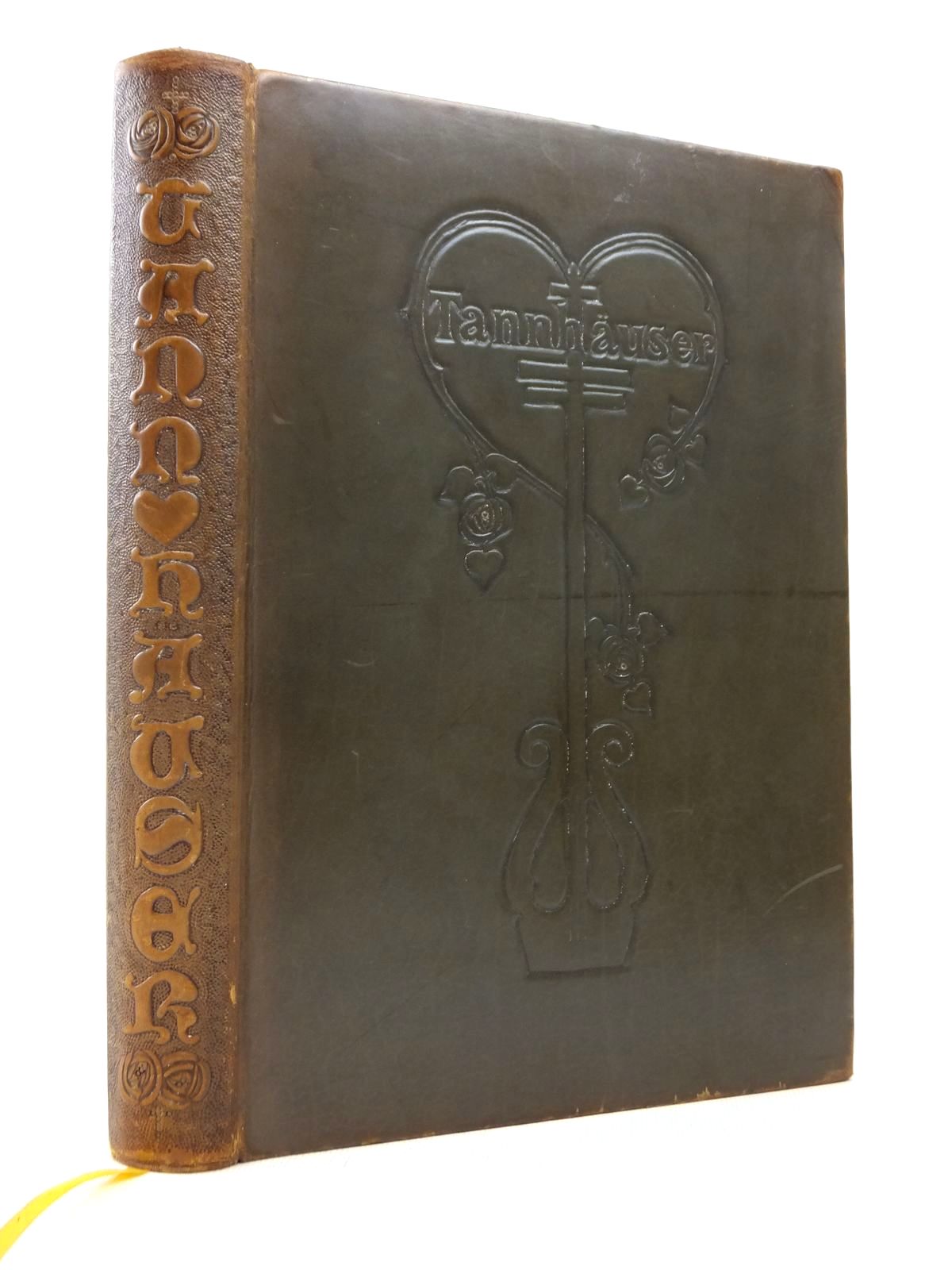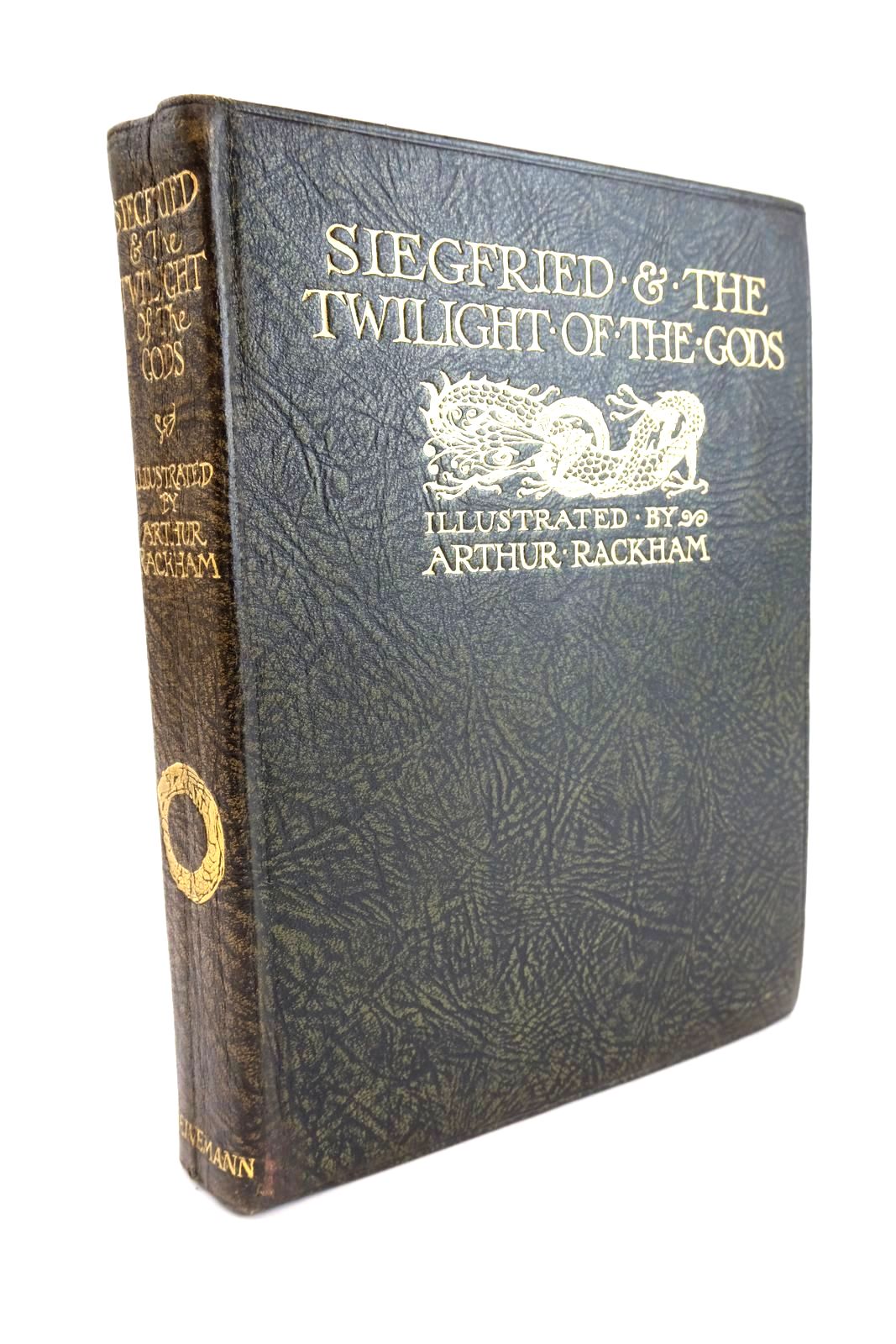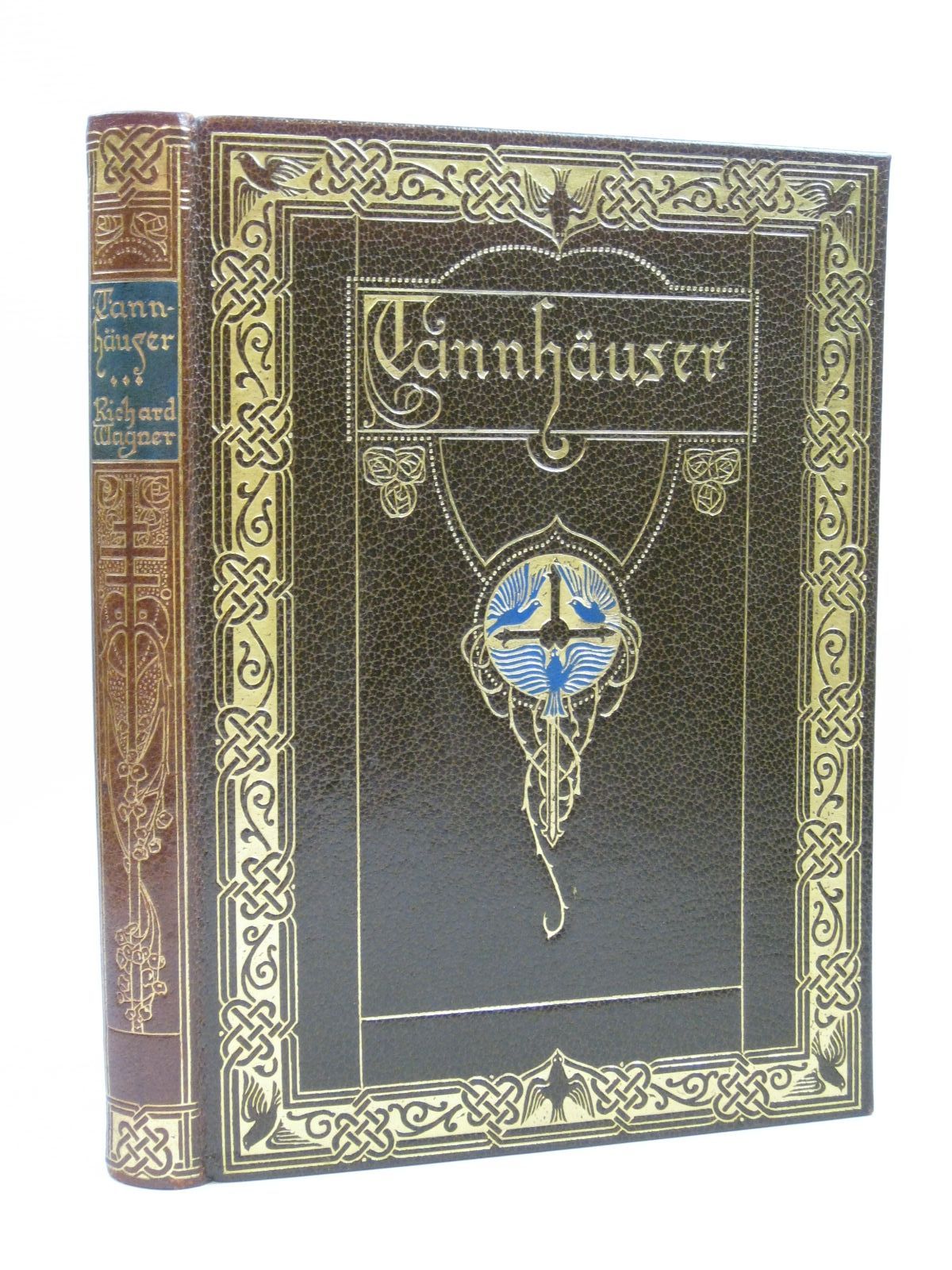Tannhauser: A Dramatic Poem Richard Wagner, illustrated by W. Pogany
 View current stock of this title
View current stock of this title
Whilst retrieving an elusive volume from our Special Book Room, I stumbled across this book in one of the cabinets. Beneath the green, tooled design covers I suspected that there would be something special lurking inside - and this is certainly true.
Left: The decorative title page.
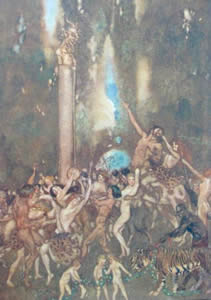 Although aficionados of opera would doubtless recognise the title, as an ex-student of Classics and ancient mythology I was of course hooked by the opening lines:-
Although aficionados of opera would doubtless recognise the title, as an ex-student of Classics and ancient mythology I was of course hooked by the opening lines:-
“Dead are the Gods of Greece this many a day... yet among the grey crags of the Horselberg, there dwells a creature fair and fearful, whom men deem to be the goddess of unholy love.”
This creature 'with the witchery of womanhood and mighty with the spell of the divine' is of course Venus, and this opening sets the tone for the poem's examination of the conflict between sacred and profane love.
Right: All manner of sensual pleasure at the court of Venus
Composed between 1843 and 1845, Wagner's opera draws on two German legends: Tannhauser, a poet and Minnesanger (singer of love songs), and the singing contest at Wartburg. With its central theme of redemption through love this book is divided into five sections: The Horselberg (Court of Venus), The Deliverance, The Reunion, The Strife of Song, and The Pilgrim.
Tannhauser has been a willing prisoner in the dwelling of Venus, indulging in the sensual pleasures of the Bacchanalian orgy. But after a year, his senses have flagged and, longing to return to the mortal world, he entreats Venus to let him depart. The goddess scorns his pleas and announces that if leaves now he will return again to satisfy his longings. She declares that men are never able to atone for the sins they commit with her as their hearts never repent them. Tannhauser rejects this view and calls upon the sacred Mary, at whose name the spell is broken and the Horselberg vanishes.
Returned to the land of mortals, Tannhauser awakes first to see a procession of pilgrims to Rome, and then a group of knights and minstrels led by the lord of Wartburg. At first reluctant to rejoin the company of men he had previously abandoned for the charms of Venus, he is persuaded to do so at the mention of Elisabeth whom he had loved and is loved in return.
A celebratory contest of song is announced to welcome the return of Tannhauser, for which the subject is declared to be Love. Wolfram is the first to sing and asserts that the essence of true love is purity. When he hears this, Tannhauser's mind returns to his time in the court of Venus and, snatching up his harp, he declares “love is passion! love is pleasure!” and that it should be sought in the grove of Venus.
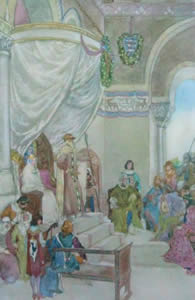
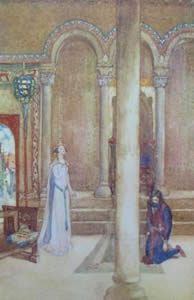


Above, left to right: At the Wartburg; Elisabeth and Tannhauser; A penitent Tannhauser seeks forgiveness at Rome;
The pontiff's staff miraculous sprouts foliage, a sign that Tannhauser's sins have been forgiven.
The court at Wartburg is shocked at Tannhauser's words and draw their blades at his blasphemy. However, Elisabeth steps forward to protect him and is prepared to sacrifice herself in order to bring him salvation. Tannhauser is spared on condition that he goes in penitence to the pontiff at Rome in order to seek forgiveness for his sin. Elisabeth prays that God forgives his sin.
In time, the pilgrims that have received the blessing and absolution from the pontiff return - but Tannhauser is not among their number. Elisabeth is distraught, and entreats Mary to receive her into the kingdom of Heaven. Her prayers are observed by Wolfram, but he cannot find words to comfort her.
Wolfram then notices the approach of a solitary figure in rent clothing. Tannhauser has returned, having been told that he would only receive forgiveness when the pontiff's staff burst forth in bud. In despair at this apparent indication that he will never be forgiven, Tannhauser decides to seek the court of Venus once again. However, Wolfram begs him to resist the temptation and tells him of the way that Elisabeth has prayed for his soul and even now she ascends to Heaven.
Tannhauser is broken hearted and falls senseless before the bier carrying the lifeless Elisabeth, moments before a procession of pilgrims arrive bearing the pontiff's staff which has miraculously burst into life. Wolfram tells the pilgrims that they are too late, for Tannhauser has already witnessed God's divine grace through the selfless actions of Elisabeth. The books ends with the pilgrim priests commending to God the souls of Elisabeth and Tannhauser.
Willy Pogany's exquisite illustrations, reminiscent of Art Nouveau in their styling, powerfully convey both the earthy nature of sensual pleasure at the court of Venus, as well as the passion, despair and salvation of Tannhauser.
A vibrant, thought-provoking work.
Contributed by Tim.
(Published on 17th Dec 2014 )


